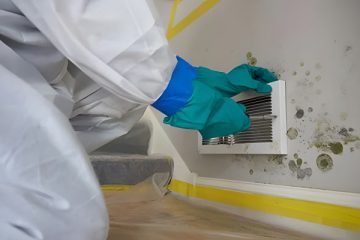Can You Get Rid of Bed Bugs Without an Exterminator? What You Need to Know

If you’ve just discovered bed bugs in your home, your first instinct might be to handle the problem yourself. A quick internet search will turn up countless DIY tips, from spraying rubbing alcohol to using essential oils or throwing everything in the dryer. But can you really get rid of bed bugs without an exterminator?
The short answer: it’s extremely difficult—and often unsuccessful.
Bed bugs are among the most resilient pests out there. They hide in tiny cracks, resist many over-the-counter products, and can survive for months without feeding. That said, understanding the limitations of DIY methods and when to call a professional can save you time, stress, and money.
In this post, we’ll break down the truth about DIY bed bug control, why professional treatment is usually necessary, and what you can do on your own to support the process.
Why Bed Bugs Are So Hard to Eliminate on Your Own
Bed bugs have a few key traits that make them uniquely difficult to deal with:
1. They’re Experts at Hiding
Bed bugs are flat, small, and adept at slipping into tight spaces. They don’t just live in mattresses—they can nest behind baseboards, inside electrical outlets, in furniture joints, and behind wallpaper. You may only see a few, but there could be dozens more hiding nearby.
2. They Reproduce Quickly
A single female bed bug can lay 200–500 eggs in her lifetime. These eggs hatch in about a week, and nymphs mature quickly. Missing even a few bugs during treatment can lead to a full resurgence within weeks.
3. They’re Resistant to Many Insecticides
Over-the-counter sprays and foggers are not designed for the kind of thorough, targeted application needed to eliminate a bed bug infestation. Worse, some products may drive the bugs deeper into hiding, making them even harder to reach.
Common DIY Bed Bug Treatments—and Why They Usually Don’t Work
Here are some popular at-home methods people try, and what you need to know about each:
Rubbing Alcohol
Yes, rubbing alcohol can kill bed bugs on contact—but only if you spray it directly on the bug. Since they hide well, you’re unlikely to hit all of them. It’s also flammable and not safe for use near heat sources or in large quantities.
Essential Oils
Some oils (like tea tree or lavender) may deter bed bugs temporarily, but they’re not a reliable treatment. Scientific studies have shown that essential oils are ineffective at killing bed bugs or controlling infestations long-term.
Mattress Encasements
Bed bug–proof encasements can help contain an infestation and make bugs easier to spot, but they don’t kill bed bugs. They work best when used after professional treatment as a preventive measure.
Laundering Bedding and Clothes
Washing and drying bedding on high heat is an important step, as heat kills all life stages of bed bugs. But this only addresses bugs on washable items—it won’t eliminate those hiding in walls, floors, or furniture.
Store-Bought Foggers (“Bug Bombs”)
These are largely ineffective for bed bugs. Foggers can’t penetrate the tiny cracks where bed bugs hide. Worse, they can scatter the bugs, causing them to spread to other areas of your home.
What You Can Do While Waiting for Professional Help
While full elimination almost always requires a licensed pest control expert, you can take some important steps to contain the issue and support treatment:
- Declutter your space. The fewer hiding spots, the better.
- Vacuum thoroughly and frequently. Focus on mattress seams, box springs, and floor edges.
- Use mattress and box spring encasements. These prevent bugs from escaping and make monitoring easier.
- Launder all clothing and bedding on high heat. Store cleaned items in sealed plastic bags.
- Isolate your bed. Move it away from the wall, place bed bug interceptors under the legs, and avoid letting bedding touch the floor.
These steps won’t eliminate the infestation on their own—but they can help prevent it from getting worse and make treatment more effective.
Why Professional Treatment Is Your Best Option
Professional exterminators use tools and techniques that simply aren’t available to the general public, including:
- Heat treatments that raise room temperatures to levels bed bugs can’t survive
- Targeted chemical applications that are safe for homes but lethal to bed bugs
- Follow-up inspections to ensure complete elimination
- Knowledge of bed bug behavior to find and treat hidden infestation sites
A reputable pest control company will also tailor the approach based on the severity of the infestation and the layout of your home.
Final Thoughts
While it’s understandable to want to solve a bed bug problem on your own, the reality is that DIY solutions rarely deliver lasting results. Bed bugs are persistent, clever, and increasingly resistant to common treatments. The longer you wait to call a professional, the more likely the infestation will spread—and the more difficult and costly it becomes to eliminate.
The best approach? Act quickly, take preventative measures, and contact a licensed exterminator who specializes in bed bugs. With expert help and a solid plan, you can reclaim your home and your peace of mind. We recommend Positive Pest Management.














